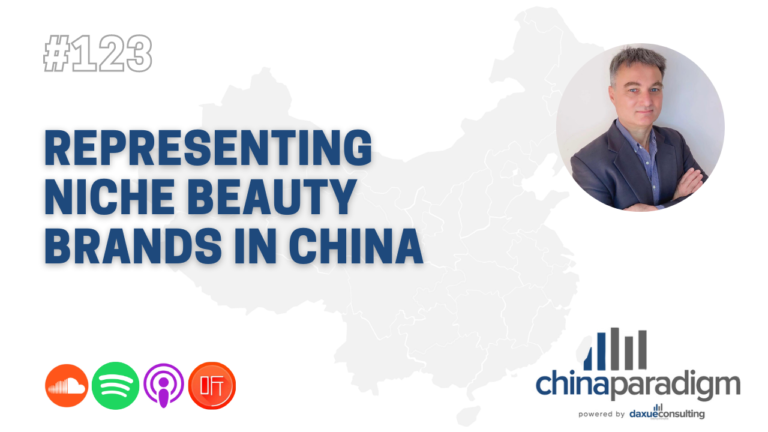China Paradigm interviewed Clare Cheng, a pioneer of AI-driven luxury branding to talk about luxury lifestyle branding in China, Chinese AI-based software, and more.
Clare Cheng, a pioneer of luxury lifestyle branding in China
Clare Cheng is a veteran in creative branding, public relations programs, and marketing events. She is an experienced entrepreneur who has successively founded 3 companies, namely 4inGroup, GastronoMeet, and ClareKnows. Each company has its own specific focus: 4inGroup specializes in customer experience through innovative thinking; GastronoMeet is an online platform for wine-lovers; ClareKnows is devoted to developing AI-driven marketing solutions. However, for these 3 companies with different focuses, one thing in common is that they all concentrate on luxury lifestyle branding in China.
“Our position is very clear: we are the luxury lifestyle expert. That is why we are all working with the luxury lifestyle brand or promote that as our specialty.”

As has been mentioned, Clare is a professional at organizing public events in the luxury industry. She has helped to promote various foreign luxury brands in China; moreover, she is experienced in “branding for a country.” For example, Clare helped the Thai government bring 10 Thai luxury brands to China last year.
ClareKnows, a trusted Chinese AI-based software for accurate branding
ClareKnows have put a lot of effort into training machines so that they have larger database than other branding agencies, which definitely ensures their high-quality services like social media management, sales bot, and social outreach for branding.

Clare came up with the idea of Chinese AI-based software in her previous experience in 4in Group: when traditional media transform gradually in China, there is a much more giant dataset to deal with for branding agencies. Clare soon found out that Chinese AI-based software could act better than humans in the following next issues: how to find the most influential person for sale, how to manage thousands of questions from customers, and how to digest massive information in a short time.
“The whole idea is to scale a business. Ideally, to launch our AI software business is to be scalable, and that will be using less and less my time. That’s our whole vision.”
Machines are fed with a large database, it not only saves employees’ working time but also makes the branding strategy more accurate. They are more accurate than humans in targeting potential customers and therefore, machines are good at make branding to go viral on social media.
The principle of “Brands go viral on Weibo”
“Let’s say you’re doing Chinese social media outreach for a luxury product, so you want to find out who wears luxury products. That’s very good for the luxury brand to find out who their targets are so they can reach them with machine.”
The principle of ‘brands go viral on Weibo’: firstly, machines will deep learn the object that clients ask for, it usually objects in pictures; secondly, machines will scroll related pictures on Weibo and pick up the accounts with millions of followers; lastly, brand will approach those accounts and leverage them for branding.
Weibo has become the initial platform in social outreach because of its open resources. Unlike limited access on WeChat, once a blogger on Weibo tweets something about the brand, it is open to every netizen. Brands will go viral on Weibo when they are posted by the most popular bloggers. In this process, Chinese AI-based software is essential in finding the right bloggers.
However, it is not correct to say that Chinese AI-based software could only work on Weibo, whereas, it also helps clients on mining websites and intelligent customer service in e-commerce business.
AI in Chinese customer service
The Chinese AI-based software could deep learn pictures and also comments, which enables it to interact with customers automatically on an individual base.
“Everyone has different questions and they have diverse preferences. Normally, people do seven days, 24 hours, and immediately.”
As a consequence of the huge numbers of questions, it is impossible to answer them manually, in this way, clients will probably lose plenty of sales opportunities. Applying AI in Chinese customer service is a perfect method to solve this issue: chatbots are able to identify questions and give back corresponding answers. As customers may come up with all sorts of astonishing questions, sometimes chatbots need to distinguish their intent and change it with different pipelines. AI in Chinese customer service not only captures but also interprets languages, therefore, pipelines of communication are flexible in translation. AI in Chinese customer service could be used for different purposes and multiple needs. For example, AI technology on GastronoMeet. GastronoMeet functions as a platform for wine lovers, except for providing traditional customer services like answering wine-related questions from customers, AI in Chinese customer service could also be applied to employee training, for instance, AI can interact with employees to investigate their mastery of services in working, which is able to improve customer services indirectly. In a nutshell, AI currently still needs a manually complementary operation, but there are definitely more applications to explore for AI in Chinese customer service.
Listen to China Paradigm in iTunes











